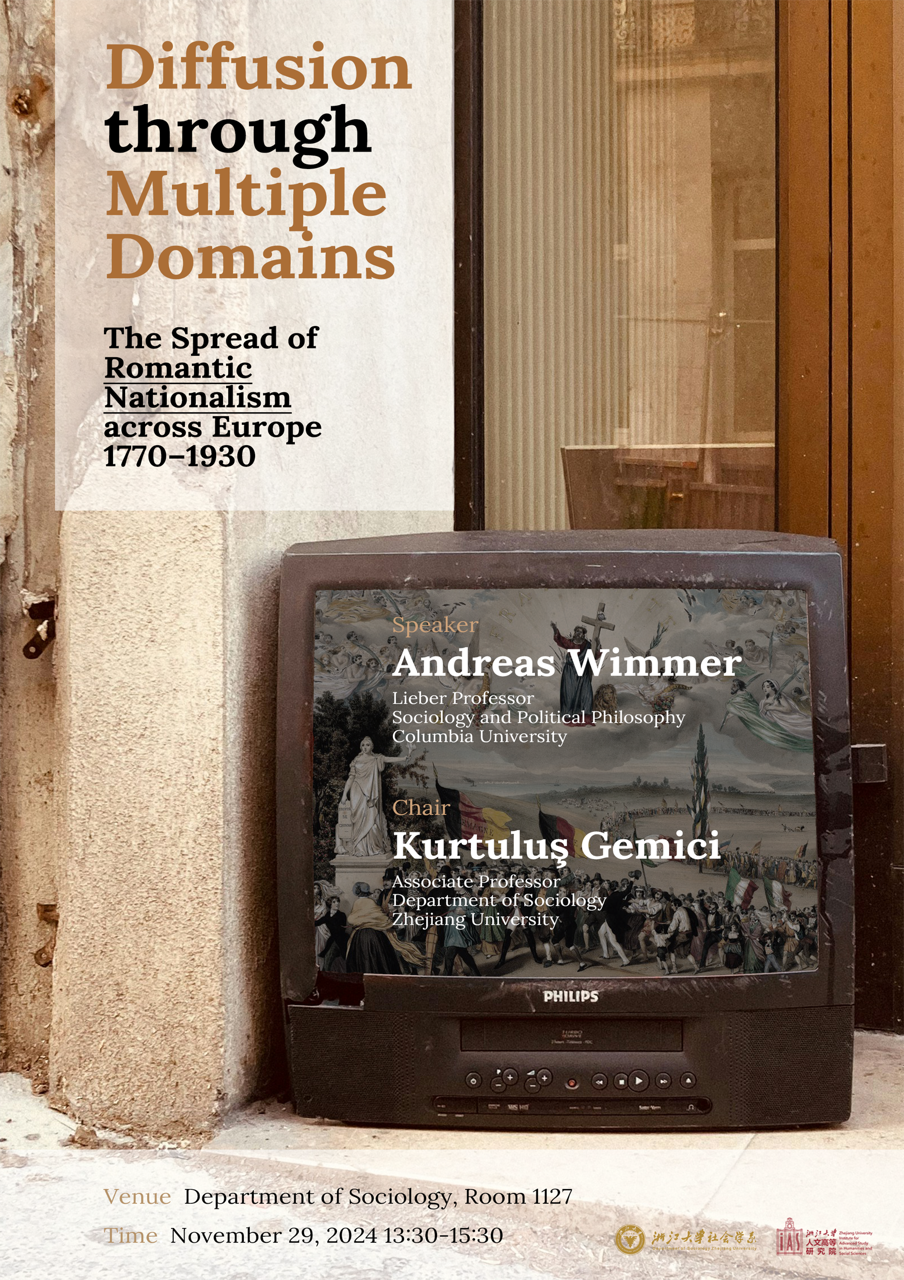
Seminar Information
Time: 29 November 2024 (Thursday) 13:30-15:30 pm (Beijing Time)
Venue:1127, Block A, Creative Building, Zijingang Campus, Zhejiang University
Language: English
Topic:Diffusion through Multiple Domains: The Spread of Romantic Nationalism across Europe, 1770–1930
Abstract: We examine an extraordinarily consequential case of ideational diffusion: how cultural nationalism spread across Europe from the French revolution onward to the First World War, “awakening” nation after nation. Through which pathways did this new frame proliferate, and where did it fall on fertile ground? Using regression analysis with 2,300 cities as observational units and a large number of geocoded data sources, we show that Romantic nationalism resonated most in states ruled by dynasties of foreign origins, which contradicted nationalist ideals of self-rule. Other frame resonance mechanisms (such as cultural compatibility) do not seem to have been at play. Regarding pathways, we show that Romantic nationalism spread across linguistic, religious, and political boundaries and simultaneously through personal networks, cultural institutions, and within clusters of historically connected cities. The article advances the study of multiplex diffusion processes, introduces frame resonance mechanisms into diffusion research, and offers the first quantitative account of the rise of cultural nationalism.
Speaker: Andreas Wimmer, Lieber Professor of Sociology and Political Philosophy, Columbia University
Andreas Wimmer’s research brings a long term historical and globally comparative perspective to the questions of how states are built and nations formed, how racial and ethnic hierarchies form or dissolve in the process, and when this will result in conflict and war. Most recently, he is trying to understand how ideas and institutions travel across the world and with what consequences. Using new methods and data, he continues the old search for historical patterns that repeat across contexts and times. He has pursued this agenda through the fields of anthropology, sociology, and political science and using multiple methods, from qualitative to quantitative, from small to large N, from online experiments to offline ethnography. Representative works include “Nation Building”“Waves of War”“Ethnic B boundary Marking”“Nationalist Exclusion and Ethnic Conflict”.
Discussant: Kurtuluş Gemici, Associate Professor,Department of Sociology,Zhejiang University
He is a comparative-historical sociologist working on international finance, the sociology of markets, and theory. His work has appeared in journals such as Theory & Society, Socio-Economic Review, Sociological Theory, and Politics & Society. Recent publications include Capital Mobility and Distributional Conflict (Routledge, 2020) and How Global Are Investment Banks? (Regional Studies, 2020, with Karen Lai).
